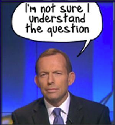|
Quantum Mechanic posted:You could. John Kaye was the one looking into it - there's definitely 20 bn of funding available in Waratah if you do phased borrowing. You wouldn't be talking about grabbing the whole 20 billion from it in one fell swoop, no. Fair enough. Still that just raises the issue of the "conservative" estimates for future borrowing rates more though. An additional 50bps over the current rate isn't that conservative as an estimate.
|
|
|
|

|
| # ? Jun 3, 2024 18:18 |
Murodese posted:Telstra's HFC network (which are the plans that go up to 100mbit) get around 15mbps in my area, Optus get around 20mbps. Shared mediums don't work that well I'm on Optus HFC installed a little over a year ago and i can get a consistent 30Mbit/1Mbit inter-australia, with the option of going up to 50/20 and 100/40 down/up.
|
|
|
|
|
Kommando posted:I'm on Optus HFC installed a little over a year ago and i can get a consistent 30Mbit/1Mbit inter-australia, with the option of going up to 50/20 and 100/40 down/up. Yeah, your modem can sync at those speeds, doesn't mean your throughput is going to be that, however. HFC, as Murodese has said, is a shared medium, meaning you're sharing it with EVERYONE in your street/area. Peak hours it becomes more congested than Coro Drive/Milton Rd and TBH I'd rather have a 20Mbit DSL connection that I don't share than a 100Mbit one that I would.
|
|
|
|
Kommando posted:I'm on Optus HFC installed a little over a year ago and i can get a consistent 30Mbit/1Mbit inter-australia, with the option of going up to 50/20 and 100/40 down/up. For HFC, a street/area is hooked up to single broadcasting unit (similar to the way a broadcast tower services an area). This is fine when you are broadcasting TV, since everyone wants to receive the same signal. For Internet, the cable provider takes a TV channel and instead of broadcasting frames of audio/video, they broadcast frames of data. The speed of cable Internet is determine by how much data fits inside a data 'frame' divided among the number of people requesting data. If there aren't a lot of people in the area signed up and using the Internet, you will get all of the data in a frame to yourself. But as soon as other people in the area request data (say at 5-10pm), your speeds will go to poo poo since the frame is split between hundreds of other people.
|
|
|
|
Is there a Netflix speed test?
|
|
|
|
Internet in Australia is bad. The NBN while expensive and perhaps uncosted would have been a good investment in infrastructure. It's also been really good to see Gillian Triggs actually hitting back at the government and specifically Ian Macdonald for being terrible.
|
|
|
CrazyTolradi posted:Yeah, your modem can sync at those speeds, doesn't mean your throughput is going to be that, however. HFC, as Murodese has said, is a shared medium, meaning you're sharing it with EVERYONE in your street/area. Peak hours it becomes more congested than Coro Drive/Milton Rd and TBH I'd rather have a 20Mbit DSL connection that I don't share than a 100Mbit one that I would. uhh, yeah. I can computer thanks. Ok, maybe i should specify that I'm getting these speeds pretty constantly throughout the day and last 5 months. Indicating there are probably fuckall people on HFC in my area of Stafford. Or have old DOCSIS2 modems and not using their share effectively. ofc, I want a FTTH gigabit connection. Negative Entropy fucked around with this message at 03:08 on Apr 2, 2015 |
|
|
|
|
I was supposed to get the NBN in 2016 under the old plan. The new, faster, cheaper, plan doesn't even bother to estimate the year it might be installed in my street.
|
|
|
|
SMH posted:The announcement comes as the Australian Bureau of Statistics revealed average broadband downloads jumped 33 per cent in the year to December. Downloads increased by one third in a year after years of double digit growth. loving muppet Government http://www.smh.com.au/it-pro/government-it/more-than-158000-nsw-homes-and-businesses-to-be-linked-to-the-nbn-next-year-20150401-1mcgyc.html
|
|
|
open24hours posted:I was supposed to get the NBN in 2016 under the old plan. The new, faster, cheaper, plan doesn't even bother to estimate the year it might be installed in my street. My area was supposed to get FTTH by late 2014 according to the old plan. but HFC is considered 'adequate' NBN now, so, i guess i should not complain. 
|
|
|
|
|
CrazyTolradi posted:Yeah, your modem can sync at those speeds, doesn't mean your throughput is going to be that, however. HFC, as Murodese has said, is a shared medium, meaning you're sharing it with EVERYONE in your street/area. Peak hours it becomes more congested than Coro Drive/Milton Rd and TBH I'd rather have a 20Mbit DSL connection that I don't share than a 100Mbit one that I would. Or you can have the best of both words, and be on a Telstra RIM like virtually every single new suburb in the Perth area. Low ADSL sync over a shared connection back to the exchange, whee! At least a lot of them have gotten the TopHat upgrade in recent years, though all it really means for many people is that your new 24mbps connection gets 2mbps during peak, instead of your old 8mbit connection getting 2mbps during peak. I considered my self one of the lucky ones, consistently getting 18-20mbit during peak hours, but my peak speeds have fallen 90% in the past week. I honestly didn't expect that many people in my area to be all over NetFlix, but I guess they are.
|
|
|
|
hooman posted:
Link please, the character assassination of Triggs is shamefull.
|
|
|
|
The weird thing about the Netflix phenomena (not really that much of a surprise) is that critics of the nbn rollout will still use the "why should my hard earned tax dollars be spent on your Netflix watching ability" argument while ignoring the fact their own internet usage is being impacted as well. Maybe when everyone goes back to the old dial up speeds because of net congestion it might filter through but I'm not optimistic about that.
|
|
|
|
Who cares about internet you nerds, footy's back!
|
|
|
|
|
Drugs posted:Who cares about internet you nerds, footy's back! Pertinent username
|
|
|
|
Footy season started over a month ago mate.
|
|
|
|
Literally nothing else happens on the internet but video streaming of (obviously crap) TV shows so therefore spending any money on it is a stupid idea. - SMH readers.
|
|
|
|
NBN Rollout in my area was scheduled for October 2013. Election occurred in September 2013. Yep.
|
|
|
|
According to the media release here: http://www.nbnco.com.au/corporate-information/media-centre/media-releases/nbn-co-updates-national-construction-plan.html My town finally has a date on it, construction should start sometime between now and September 2016. But why release this info on April fools day?!
|
|
|
thatfatkid posted:Footy season started over a month ago mate. I was actually referring to football, not "gang-rape-poo poo-on-the-floor-piss-in-your-own-mouthball"
|
|
|
|
|
Morrison just made his election campaign speech directly to scared pensioners live on ABC lmbo. He looked directly into the camera while doing it, too. He also profusely thanked everybody for the ideas about aged pension reform and reaffirmed that he's open to any suggestions and wishes people wanted to help because it's important but nobody else has ever had any interest in it before.  fliptophead posted:The weird thing about the Netflix phenomena (not really that much of a surprise) is that critics of the nbn rollout will still use the "why should my hard earned tax dollars be spent on your Netflix watching ability" argument while ignoring the fact their own internet usage is being impacted as well. Maybe when everyone goes back to the old dial up speeds because of net congestion it might filter through but I'm not optimistic about that. So the same process behind the majority of conservative/fygm thinking? Short-sightedness, spite and ignorance of the interconnectedness of society.
|
|
|
|
Drugs posted:Who cares about internet you nerds, footy's back!
|
|
|
|
JBark posted:Or you can have the best of both words, and be on a Telstra RIM like virtually every single new suburb in the Perth area. Low ADSL sync over a shared connection back to the exchange, whee! At least a lot of them have gotten the TopHat upgrade in recent years, though all it really means for many people is that your new 24mbps connection gets 2mbps during peak, instead of your old 8mbit connection getting 2mbps during peak. I didn't mention RIMs because they give me flashbacks to when I case managed ADSL faults, but 9/10 speed issues on RIMs are purely due to bandwidth issues and Telstra Wholsesale response was generally "Suck poo poo, it might get upgraded in 18-24 months time.". I was working at Telstra when news of the TopHat upgrades went around internally and couldn't help but laugh and mention to my team leader the real issue isn't the DSL ports in the RIM, it's the lovely X amount of 2Mbit backhaul links they have to the exchange. Usually it's 5-10 from what I saw in the plant and cable records, but I have come across RIMs in metro Brisbane that don't even have ADSL1 DSLAM ports on them. Almost rented a very lovely house that would have been perfect except for the fact that you couldn't get DSL or cable at all there. RIMs are scourges that need to be set on fire and dragged out of the ground by car, but I would never, ever encourage anyone to consider such an action.
|
|
|
|
Stoca Zola posted:According to the media release here: http://www.nbnco.com.au/corporate-information/media-centre/media-releases/nbn-co-updates-national-construction-plan.html I still have no date, however there is work being done near me now. The boundary ends 3 houses down the road from me.
|
|
|
|
starkebn posted:That's theoretical, the question is where in Australia has the infrastructure that can really handle it West Footscray. I have NBN FTTP, and always get a seat on the train during peak hours. It's only 15 mins to Melbourne Central, and there aren't too many heroin junkies anymore.
|
|
|
|
Sludge Tank posted:From the Daily Telegraph... sorry if someone's already posted it but I didn't see it Michaelia Cash is a piece of poo poo as bad if not worse than Morrison. If you've seen her in action, she's a straight up bully and I don't know if she can't control it as well as Morrison or if she's just never felt the need because she has a comparatively low profile. They look to be a rising star in the LNP though so I look forward to people noticing what an rear end in a top hat she is, but not finding out it makes her more popular.
|
|
|
|
OTOH Cash's hairstyle really reflects the era that the Liberal Party are currently residing in.
|
|
|
|
katlington posted:Link please, the character assassination of Triggs is shamefull. Two articles, the first where she chastises the coalition for criticising the findings in totally the wrong way. "Guardian AU" posted:
Then this where she has finally come out swinging. "Guardian AU" posted:
|
|
|
|
http://www.abc.net.au/news/2015-04-02/nsw-election-no-land-tax-party-flags-legal-challenge/6367210quote:No Land Tax Party threatens legal challenge to overturn result
|
|
|
|
Who is Peter Jones? The guy seems pretty outspoken for being a minor party. It appears pretty transparent that someone had done a deal with the minor party who drew first on the ballot to try and buy a senator. The quip about polite people being paid first, and rude people last is something a scam artist would say to keep people hanging. I doubt anyone's getting paid if they aren't getting a seat.
|
|
|
|
*Be a Judge* *take Crystal Meth* *This is reality*
|
|
|
|
Scott Morrison Policy Launch: http://youtu.be/pMfXClVJn6w
|
|
|
|
Holy poo poo, Rundle just unloaded about depression and anxiety. Worth the subscription cost:quote:Good God, when you go to war with Mia Freedman, everyone piles on. Your correspondent made a comment on la Freedman’s piece “I’m finally ready to talk about my anxiety”, and suddenly everyone was there, from la Freedman herself to her Dad to Ageistas-turned-Guardianistas, to (ha) Paul Murray, one of Sky News’ resident shock jocks. It was like a Wes Anderson movie, you keep expecting Owen Wilson to come through the door in a silly uniform.
|
|
|
|
katlington posted:So the same process behind the majority of conservative/fygm thinking? Short-sightedness, spite and ignorance of the interconnectedness of society. But that's what I mean, they can't even claim fygm because they haven't even got theirs!
|
|
|
|
Hey Auspol, have a graph I made: This was made to show a bozo with an MBA why mobile data services aren't going to be obsoleting fixed lines any time soon. Edit: included handset data and total mobile data. Mr Chips fucked around with this message at 05:56 on Apr 2, 2015 |
|
|
|
Mr Chips posted:Hey Auspol, have a graph I made: This is pretty much what real experts have been saying for ages now, but newspapers will still get "experts" in social trends to tell us how MOBILES ARE THE FUTURE of computing and wireless is the THING that will drive the Internet in this brave new world.
|
|
|
|
CrazyTolradi posted:This is pretty much what real experts have been saying for ages now, but newspapers will still get "experts" in social trends to tell us how MOBILES ARE THE FUTURE of computing and wireless is the THING that will drive the Internet in this brave new world. open24hours posted:I'd imagine it's because it excludes handsets. I actually read those bits and completely forgot about them. Mr Chips fucked around with this message at 05:59 on Apr 2, 2015 |
|
|
|
Mr Chips posted:Luckily the latest round of ABS stats came out yesterday. Fixed had another year-on-year of double digit growth, mobile had gone backwards again. If I had more time, I'd look at their collection methodology for mobile, because mobile traffic going backwards is a bit counter-intuitive. That might tie into the fact that open/free Wifi networks are becoming more widespread. I used to use a lot more mobile data, but at this point the only time I use it now is between home and uni. Even when I go over to Toowong Village, there's at least 4-5 free networks I can use over there. Telstra and Optus have also been rolling them out in public places a fair bit lately as well.
|
|
|
|
Re: the iinet sale, lots of incorrect info in this thread. Phone posting at the moment so I'll be brief, but it hasn't been sold yet - it goes to a vote in the shareholder meeting in June/July. TPG require 75% of the total amount of shares to be in the hands of people willing to sell at the 8.60 offering price. The board doesn't decide, they make a recommendation to shareholders. The shareholders then get the final say. This is why founder Michael Malone is on the warpath. With 5% of the total share holdings, he 'only' needs to convince enough people to make up another 20% of the total amount of shares to vote against the motion.
|
|
|
|

|
| # ? Jun 3, 2024 18:18 |
|
I'd imagine it's because it excludes handsets. http://www.abs.gov.au/AUSSTATS/abs@...2014&num=&view=
|
|
|






























